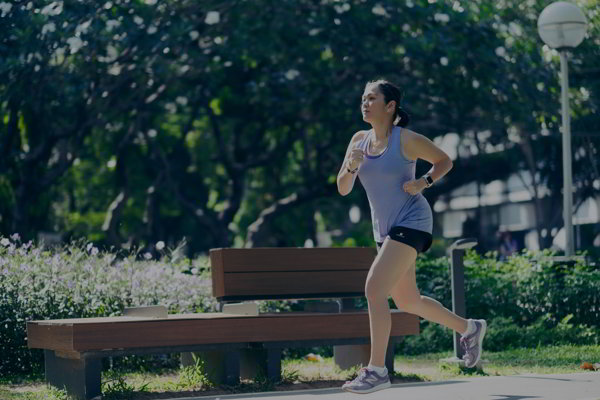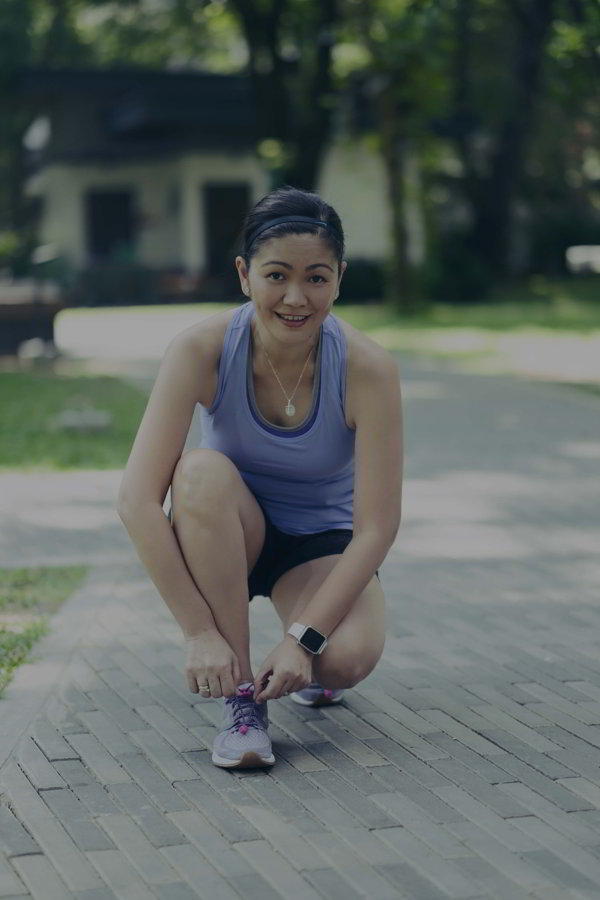By Gae Martinez
Back in 2009, I was diagnosed with Spontaneous Pneumothorax (a rupture in the lungs). It was unexpected, especially since I believed that I took care of myself relatively well and according to research, it usually affects tall people and men, both of which I am not.
I didn’t even realize that I was already living with the condition as I put down my shortness of breath to something stress-related. My condition was bothering me, though. I remember gasping for air as I went up a flight of stairs to attend a meeting. I was in the process of resigning from an insurance company that time to fulfill my midlife fantasy of being a stay-at-home mom.

To take advantage of the HMO connected with my employment, I went for a checkup. The doctor did tests for my heart and did not find anything wrong, but I still kept feeling the symptoms. On the very last day at my job, I went to get another checkup. This time, the doctor ordered an X-ray.
The result was shocking – I had been functioning on one lung. My right lung had collapsed, and I was literally gasping my way through life. I was at a loss. One of my photos on that last day of work showed me with eyes that had become swollen from crying. I was worried at the thought of undergoing surgery. I was anxious because I was jobless and my husband’s HMO did not provide coverage. I did not know how I’ll pay for all my medical expenses.
They first inserted a tube through my lungs to get it to inflate like a balloon. I lived with that tube for several days, bringing it everywhere with me. It worked the first time, but then my lung collapsed again, and I was scheduled for surgery.
There was a relatively new procedure during that time, where they would make small incisions to insert cameras and surgical equipment through my lungs and repair it, much like a vulcanizing job. If they didn’t find the “leak”, however, they would have to open me up and roll back my ribcage.
The morning of my surgery, I had a long talk with my husband Renvi. I gave him instructions on what to do in case I die. My life flashed before me. I worried about my two children, about how they would grow up without a mother. I have a daughter who was eight at the time. Who would guide her through puberty? What if my husband remarries and their stepmother would not treat them kindly?
My own father died when I was eight, so I know all about the challenges of losing a parent. One of these challenges was financial. My father died without leaving us anything. Having experienced such difficulties growing up, I have learned to plan ahead. As someone who now works for a financial institution, I am especially driven to share my skills and knowledge to ensure that people understand the value of being prepared.
Imagine the stress that would have been lifted from my shoulders had I been covered by a health plan as I was dealing with my lung problem! If you are diagnosed with conditions that require comprehensive and often long-term care, one of your immediate thoughts is “how can I afford these out of pocket?” It is an open-ended situation, and understandably a big concern.
Now that I am better, I use my story to encourage other people, particularly women, to invest in their future and in the future of their families. I have also been making changes in my lifestyle to ensure that I will be able to enjoy more years with my kids Luis and Ianna. I have been eating healthier, and spending more time with my family, going on trips or enjoying quality bonding moments even at home.

What I had undergone was both a physical and mental struggle, but I knew I would not give up without a fight. My will to live came from the fact that I had my family depending on me; that my children need me to be there as they are growing up. When I did recover, I wanted to go back to work, in an industry where I knew that I would be touching more lives. I am fortunate that this is what I am doing today.
Being a woman, especially a mom, gives us more responsibility in the care and nurturing of others. We take on so many roles and responsibilities, and I believe that if you have peace of mind about what may come in the future, you are more able to focus on the things that you need to do today. That is why I think women should look into ways in which they can invest in that peace of mind and feeling of financial security.
#
Gae Martinez is a finance and insurance expert who has been in the industry for more than a decade. As chief marketing officer of Allianz PNB Life, she has advocated for financial literacy, social inclusion and sustainability. She has also spearheaded the activation of Allianz’ grassroots football program in the Philippines and its obstacle course racing (OCR) projects.
